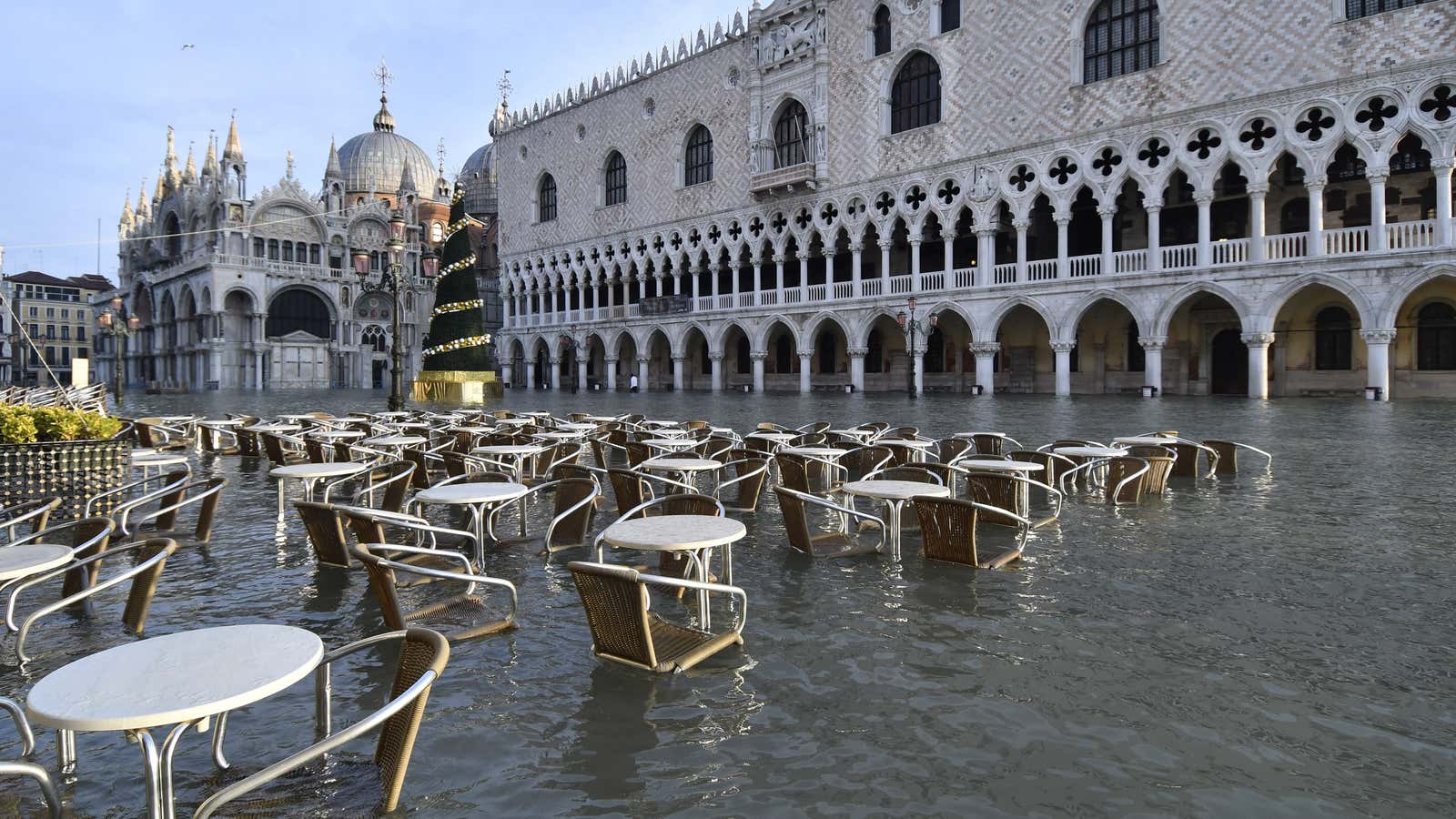Last month, the cities of Barcelona, San Diego, Boston, and Nottingham all officially declared climate emergencies. They kick off a year that is likely to explode with similar civic pronouncements as cities grapple with responding to and mitigating the consequences of a warming world.
“We can no longer afford to say we need to act on climate for our kids and our grandkids. The effects are happening now,” Boston city councillor Matt O’Malley told Quartz. O’Malley put forward the climate emergency resolution passed by the city in January.
Globally, 1,330 governments have passed a binding motion declaring a climate emergency, according to Cedamia. The populations of those areas total more than 814 million, meaning nearly one in ten people live in a community that has made the statement.
While the first climate emergency was declared in 2016 by Darebin, Australia, 98% of subsequent statements were made in 2019. The places range from small locales to entire countries.
There is no shared definition of a climate emergency. For some it is a legal acknowledgement of an immediate disaster and a way to access money for combatting the effects; for some it signifies a commitment to measures meant to reduce the impact of climate change; and for others it is an official recognition of an existential threat.
In a public health context, emergency declarations have a specific meaning: imminent hazard to health. It can be a crucial step to allow local officials, or national agencies, to take immediate action.
“Climate has become the new emergency… It’s new ground for public health,” says Thomas A. Burke, director of the Johns Hopkins Risk Sciences and Public Policy Institute. He says climate change is very different than a more classic public health emergency like the novel coronavirus discovered in Wuhan, China. “There can be catastrophic impacts but they’re very uncertain, very hard to model. But, the acknowledgement by declaring an emergency says we gotta do something and we gotta do it now.”
Some declarations are more symbolic. O’Malley says the purpose of Boston’s resolution was to underscore the importance of the problem and “set the tone and the lens for how we address issues on climate.”
According to Burke, such symbolic statements are an important part of addressing climate change: “Let’s face it—declaring an emergency is the polar opposite of declaring climate change a hoax.”
Communities in 25 countries have acknowledged the emergency, as of Jan. 28. The world’s most populous nations, however, have yet to get on board. Forty percent of the world lives in China or India. No municipalities in either have declared a climate emergency.
That doesn’t mean those areas aren’t feeling the effects. The lack of declarations is likely a symptom of politics. Some governments don’t want to make any strong public statements, others deny the problem altogether.
In the United States, the topic is particularly polarizing.
In the US, 76 governments have declared some sort of climate emergency. Compare that to 417 in the United Kingdom, and 491 in Canada. Only 8% of Americans live in an area that has made the statement.
“I think many other countries, particularly European countries, are ahead of the United States in not only accepting the fact that climate change is real and man-made and reaching catastrophic levels of impact, but also putting policies together to address it,” says O’Malley. “We are severely, and I mean severely, hindered by the fact that we have a climate-change denier in the White House.”
“There’s a political divide,” agrees Burke. “There shouldn’t be. The science is not partisan.”
The New York Times recently found that attempts by Republican states to get funding for climate-related disasters have required them to perform ‘linguistic acrobatics” in order to avoid mentioning climate change. And it appears the same is happening with climate emergency declarations.
Eighty-seven percent of American cities that have made an emergency declaration are in states Donald Trump lost in the 2016 presidential election.
That’s not a coincidence. “[Conservative states] are working toward adaption, they are clearly applying for disaster relief, but the word climate is not there,” Burke says. “If it’s seen as a major acknowledgement of climate change and a demand of the current administration to fund climate-related work, it’s probably dead on arrival.”
